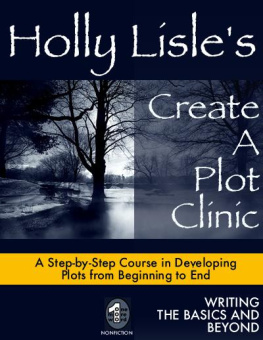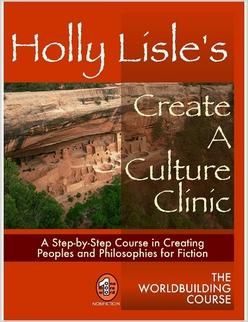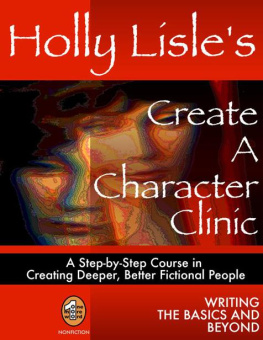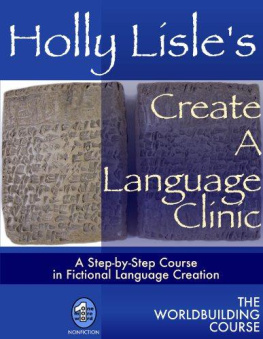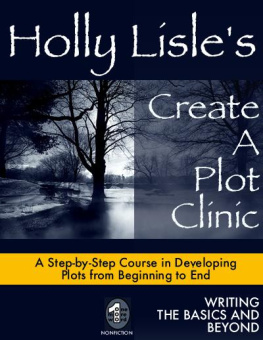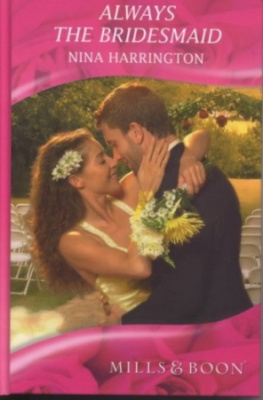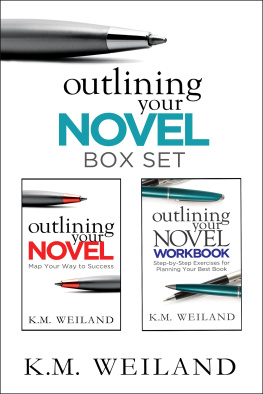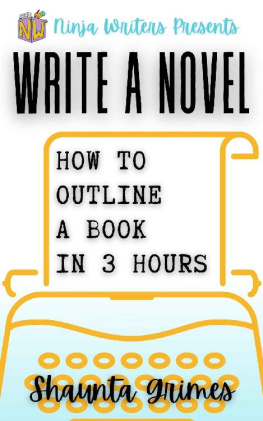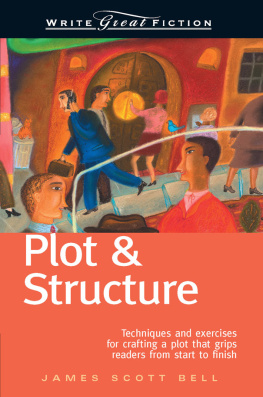Holly Lisle's Create A Plot Clinic viii

Holly Lisle's Create A Plot Clinic viii

Holly Lisle's Create A Plot Clinic
We Need Your Help
Like independent writers everywhere, the writers at Shop.Hollylisle.Com need help reaching readers. If you like this book and found it helpful, please help us reach other readers like you. Tell friends about it, recommend it on websites where writers meet, and join our affiliate program, which allows us to pay you every time someone follows your recommendation and buys this book.
Here's how it works: Become an affiliate of Shop.HollyLisle.Com , and link to this book on your website, on your weblog, in your emails, or by sending out promotional coupons. In return, you'll earn 15% of the book's sale price for your very first sale, and up to 20% for every sale from your links or coupons ... plus 33% of every sale made by anyone you sign up as an affiliate through your own link!
We provide all the links, text, and banners, so you need no programming experience. We'll even give you free tracking software so that you can see every sale you make as soon as you make it.
Does it cost you anything? Not a dime. In fact we'll give you a $10.00 sign-up bonus for joining our affiliate team.
Join here:
http://shop.hollylisle.com/idevaffiliate/ Thank you for helping us get the word out!
viii
Acknowledgments
Huge thanks to Heather Wardell, Monica Jackson, Sandy Lunsford, Diane Moore, and Matt, who tore through this book with amazing speed and wonderful accuracy, pinpointing the places where ideas went wrong, where my typing wandered astray, and where I knew what I meant, but missed getting that across to my reader, all while building their own plots in three days.
And to the many unofficial beta users who raced alongside the official beta testers, and figured out what was missing, and asked for extra material to get them through their plotting woes. As much as I've been able to answer your questions, it's all in here.
And to those of you who asked me to write this book, sometimes loudly, sometimes pleadingly, but always with great good humor. I hope it's everything you hoped it would be.
Thank you so much for encouraging me, helping me, and letting me know this project mattered to you. The book is better for your parts in it.
And the remaining errors, of course, are all mine.
Holly Lisle's Create A Plot Clinic
Anyone can write one book, and perhaps even sell it, and in the rarest of circumstances, become famous from itbecause lightning does strike. To make a career of writing, though, you must take up the burden of making lightning strike regularly, where and when you want it.
Introduction: What Is Plotting (And Why Is It So Hard?)
Plot Is...
From a fiction writer's perspective, plot (the thing that is plot, not the act of plotting) is simple. Easy to comprehend, clear, plain, sensible.
Plot is the series of events that move the characters and story forward.
So to plot out a story or a book, all you have to do is come up with those events. Easy as falling off a log.
Riiiiiiiiiiiiight.
You'd better sit down. Maybe take a couple of deep breaths. I have a few things to tell you about what I've discovered about plotting over the last thirty-some novels and seventeen-plus years, and what I have to say includes good news, bad news, and news that could well make you run away screaming. Or want to, anyway.
Where Plots Are Born
Plotting's first home is your logic.
Fortunately for all of us, logic is both a learnable and a teachable skill, and once learned, it doesn't throw curve balls at you. That's the good news. The things you do logically will work the same way every time. I know these logical techniques, I use them regularly, and I can show them to you. It's simple stuffsome of it pretty well known to most writers, some of it original to me, none of it anything that will make you crazy. You sit down to plot, you break out your logic and the tools that logic uses, and you get to work, and you will get logical, predictable results.
HOWEVER...
Content is not logic's strong point. Logic will not give you passion. It will not give you heart. It will not give you magic.
Plotting's second home is your life.
From your life, you will rip out the moments when you screwed up, the times when you fell down in front of everyone, the places where you said stupid things, where you dropped the ninth-inning fly ball and lost the game for everyone. And you will bring back the pain, the humiliation, the shuddering anguish of being human and fallible like the trophies of experience and mortality that they are, and you will write these things down in new ways, so that your story will be human and recognizable, and people will understand and empathize with your characters. We know each other best through these shared moments of pain and failure and humility, because we have all had them.
You will give these pains and hopes to your characters, disguised with new names, new faces, and new events, but the pain and the hope are purely yours, and the way you will put them on the paper will create your unique voice. This is where your story gets its heart, and where it gets its passion.
So I can teach you how to do this, but I can't make you do it, and if you don't do it, you'll cut your chances of success drastically.
And that's the bad news, but it isn't the worst news. The run-screaming news. Because you can create logical structures and flowing storylines and emotional, heartfelt scenes, but if you don't manage to get that spark of magic into your story, that intangible bit of something that makes it new and fresh and different and compellingif you don't manage to harness a bit of magic and nail it to the page, your odds of selling your work are slim.
And magicthat spark of life that will capture your editor's heart and bring The Call to your telephone, and win you readers, is the part of the plot that your subconscious (your Muse) will toss in your direction occasionally. At a whim. In a cranky, recalcitrant, obdurate, obfuscating fashion.
If you beg. Wheedle. Play tricks. Apply the occasional red-hot poker.
Because...
Plotting's third home is your Muse.
This is where, if you're inclined to such things, you run screaming. Because the parts of plots that make stories grab readers and make them remember what you've written, that make your readers have to go out and find your next book, and the one after that, come from the part of you that you cannot control.

